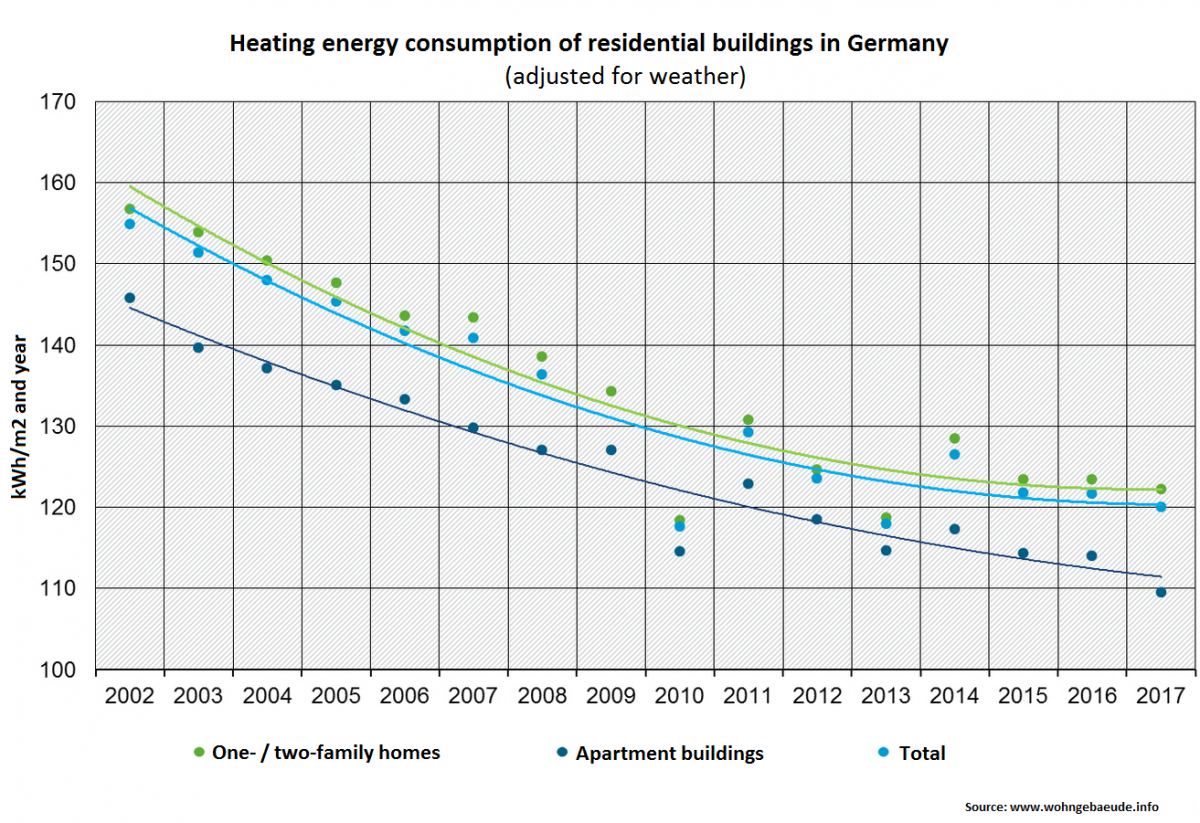Slower energy efficiency gains for family homes in Germany
Clean Energy Wire
The energy efficiency gains of one- or two-family homes in Germany have begun to flatten out in recent years, making clear that more efforts are needed to achieve further progress in bringing down emissions in the country’s heating sector, a new database by energy customer consultancy co2online and the Federal Environment Agency (UBA) shows. While there were significant efficiency gains in this housing segment in the period between 2002 to 2012, progress since has become much slower. This was true also for apartment buildings but especially so for family homes, with the main reason being a lack of heating optimisation, the consultancy says. “Efficiency potential through retrofitting or in newly built houses is being squandered if there is no subsequent optimisation,” co2online’s Tanja Loitz says, calling on house owners to keep an eye on their heating consumption and to “readjust” if necessary.
Germany is under pressure to meet its goal of cutting greenhouse gas emissions by 55 percent by 2030. Emissions from buildings must be reduced by at least 66 percent compared to 1990 levels (2018: -44 percent), according to the government's Climate Action Plan 2050. Earlier this year, federal interior minister Horst Seehofer, who is also responsible for buildings, cancelled plans to set up a commission that was supposed to propose ways to cut carbon emissions in the sector. However, Seehofer proposed making the climate-friendly renovation of older buildings tax deductible in order to help bring down emissions in the sector. Seehofer is expected to present first proposals on emissions reductions in heating in the climate cabinet meeting on 29 May.


